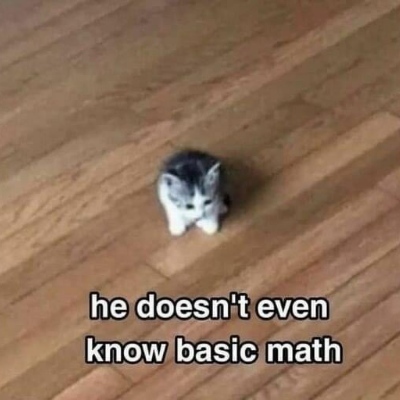Ah, so that’s why your house gets egged even if you give candy.
What about trick implies treat?

Implies sign is an arrow, what do you mean?
I think they refer to the truth table of Implies.
A | B | A => B T T T T F F F T T F F TYes, they do.
So since you’re expecting to get either tricked or treated, the correct way to say it is “trick XOR treat”
You mean we are not supposed to trick after getting candy? That ruins the fun!
I like trick and treat
LEFT OUTER treat
deleted by creator
Trick or treat is Turing complete
Tiis give me flashbacks of my probability classes of me doing little diagrams to help me visualize what set in probability space im looking for.
Me, fresh out of COMP301, bragging about how I can make any halloween costume out of only xor gates
You mean NAND gates?
(Trick NAND Trick) NAND (Treat NAND Treat) <-> Trick or Treat
pretty sure both work
NAND and XOR aren’t equivalent, though
| X | Y | X NAND Y | | 0 | 0 | 1 | | 1 | 0 | 1 | | 0 | 1 | 1 | | 1 | 1 | 0 || X | Y | X XOR Y | | 0 | 0 | 0 | | 1 | 0 | 1 | | 0 | 1 | 1 | | 1 | 1 | 0 |& XOR can be reduced to NAND; not sure if NAND can be reduced to XOR
@walthervonstolzing @AntiOutsideAktion
If ya’ll get bored and wanna read more about this, this is a property called functional completeness. I’m pretty sure nand and nor are the only functionally complete binary operators, so xor shouldn’t be functionally complete.
pretty sure I meant to say nor
I believe in XNOR (neither or) supremacy
XAND - a AND b, but not at the same time.
What about 1/2 Trick + 1/2 Treat until you observe















